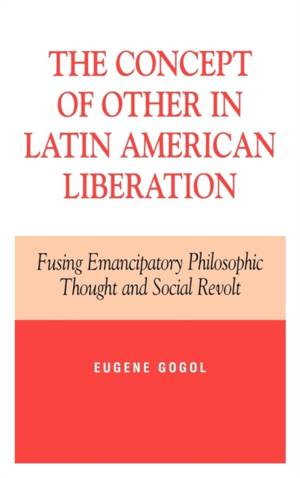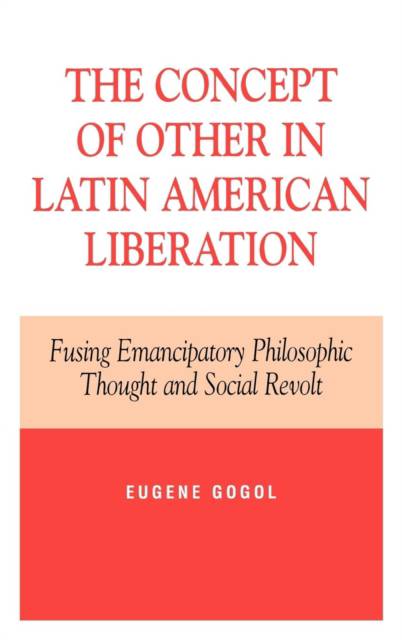
- Afhalen na 1 uur in een winkel met voorraad
- Gratis thuislevering in België vanaf € 30
- Ruim aanbod met 7 miljoen producten
- Afhalen na 1 uur in een winkel met voorraad
- Gratis thuislevering in België vanaf € 30
- Ruim aanbod met 7 miljoen producten
Zoeken
Concept of Other in Latin American Liberation
Fusing Emancipatory Philosophic Thought and Social Revolt
Eugene Gogol
Hardcover | Engels
€ 247,45
+ 494 punten
Omschrijving
In this exciting new study, Eugene Gogol interweaves three strands that form the intellectual bedrock for the concept of the Other in the Latin American context: Hegel's dialectic of negativity, Marx's humanism, and autochthonal emancipatory thought. From this foundation, the book explores the relation of liberatory philosophic thought to today's social and class movements. Gogol considers the logic of capitalism on Latin American soil, the ecological crisis in Latin America, and the concept and practice of self-liberation. Still one of the most contested terrains of Latin American thought, the Other has been of central concern for many luminary thinkers including Leopoldo Zea, Octavio Paz, and José Carlos Mariátegui. While these writers may not garner much publicity in the world press, the highly public and ongoing struggles of the Zapatistas and Brazil's Landless Workers Movement demonstrate the continuing need to theorize the volatile nature of Latin American social reality.
Specificaties
Betrokkenen
- Auteur(s):
- Uitgeverij:
Inhoud
- Aantal bladzijden:
- 398
- Taal:
- Engels
Eigenschappen
- Productcode (EAN):
- 9780739103302
- Verschijningsdatum:
- 1/03/2002
- Uitvoering:
- Hardcover
- Formaat:
- Genaaid
- Afmetingen:
- 160 mm x 233 mm
- Gewicht:
- 762 g

Alleen bij Standaard Boekhandel
+ 494 punten op je klantenkaart van Standaard Boekhandel
Beoordelingen
We publiceren alleen reviews die voldoen aan de voorwaarden voor reviews. Bekijk onze voorwaarden voor reviews.











